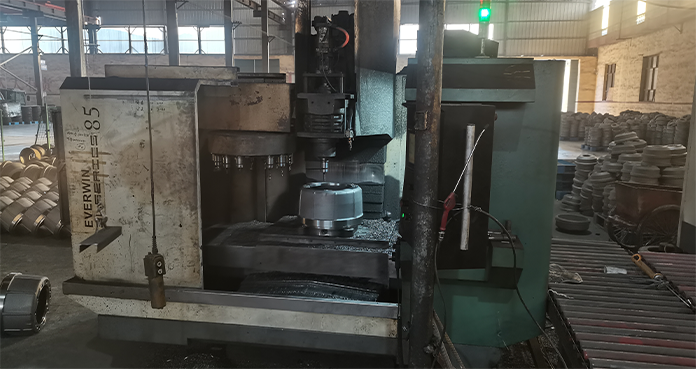Dec . 03, 2024 18:03 Back to list
Nissan Brake Drum Selection and Maintenance for Optimal Performance
Understanding Nissan Brake Drums Importance and Maintenance
Introduction
Braking systems are crucial components of any vehicle, ensuring safety and control during operation. Among the various parts of a braking system, brake drums play a significant role, particularly in older models and certain designs of Nissan vehicles. Understanding the function, maintenance, and potential issues related to Nissan brake drums can help car owners ensure the longevity and reliability of their vehicles.
What are Brake Drums?
Brake drums are a type of braking component found in drum brake systems, which are often used in the rear of vehicles. They consist of a cylindrical metal drum that rotates with the wheel and brake shoes that expand against the inner surface of the drum to create friction and slow down the vehicle. Nissan brake drums are specifically designed to work seamlessly with the Nissan braking system, offering reliable performance and durability.
Functionality of Brake Drums in Nissan Vehicles
When the driver applies the brakes, hydraulic pressure activates the brake shoes, pushing them outward against the inner surface of the brake drum. This action creates friction, which slows down the rotation of the drum and, consequently, the wheel. The overall design of Nissan brake drums contributes to effective heat dissipation, ensuring that the braking system does not overheat during prolonged use.
Nissan’s innovative engineering and design often incorporate lightweight materials in their brake drums, which helps improve overall vehicle efficiency. The balance struck between strength and weight is essential for maintaining vehicle performance while also enhancing safety features.
Common Issues with Nissan Brake Drums
Despite their robust design, Nissan brake drums can experience wear and tear over time. Some common issues include
2. Cracking Excessive heat and stress can lead to cracks in the drum, which compromise its structural integrity.
nissan brake drum

3. Worn Brake Shoes The friction material on brake shoes wears down over time. Worn shoes may not make adequate contact with the drum, which can lead to decreased braking performance.
4. Rust and Corrosion Brake drums can suffer from rust, especially in regions with high humidity or where roads are salted in winter. Rust can lead to uneven wear and reduced braking performance.
Maintenance Tips for Nissan Brake Drums
To ensure optimal performance and longevity of Nissan brake drums, regular maintenance is essential. Here are some maintenance tips
1. Regular Inspections Check brake shoes and drums for any signs of wear, cracks, or warping during regular vehicle maintenance.
2. Brake Fluid Replacement Ensure that the brake fluid is at the appropriate level and replace it as per the vehicle's service manual. Contaminated or low brake fluid can affect braking efficiency.
3. Cleanliness Keeping the brake assembly clean and free from dust and debris can help ensure smooth operation. Use a brake cleaner to remove any buildup.
4. Monitor Performance Pay attention to how the brakes feel. If there are any strange noises, vibrations, or a decrease in stopping power, have the braking system checked immediately.
5. Professional Servicing At the first sign of trouble, consult a qualified mechanic. They can provide a more thorough inspection and suggest whether brake drums need to be resurfaced or replaced.
Conclusion
Brake drums are an essential component of Nissan vehicles, contributing significantly to the safety and performance of the braking system. By understanding their function and maintaining them properly, Nissan owners can enhance their vehicle's reliability and prolong its life. Regular inspections, timely servicing, and attention to any warning signs will ensure that your Nissan continues to provide a safe driving experience. Remember, a well-maintained braking system is crucial for your safety on the road.
-
Scania Brake Drums: OEM Quality for Optimal Safety & Durability
NewsAug.16,2025
-
R.V.I: Advanced Remote Visual Inspection for Precision
NewsAug.15,2025
-
Discover HYUNDA: Innovative Vehicles, Equipment & Solutions
NewsAug.14,2025
-
R.V.I: Unlock Advanced Insights & Real-time Performance
NewsAug.13,2025
-
Kamaz Brake Drum: Durable & Reliable for Heavy Duty Trucks
NewsAug.12,2025
-
Heavy Duty Iveco Brake Drum - Premium Quality & Safety
NewsAug.11,2025
